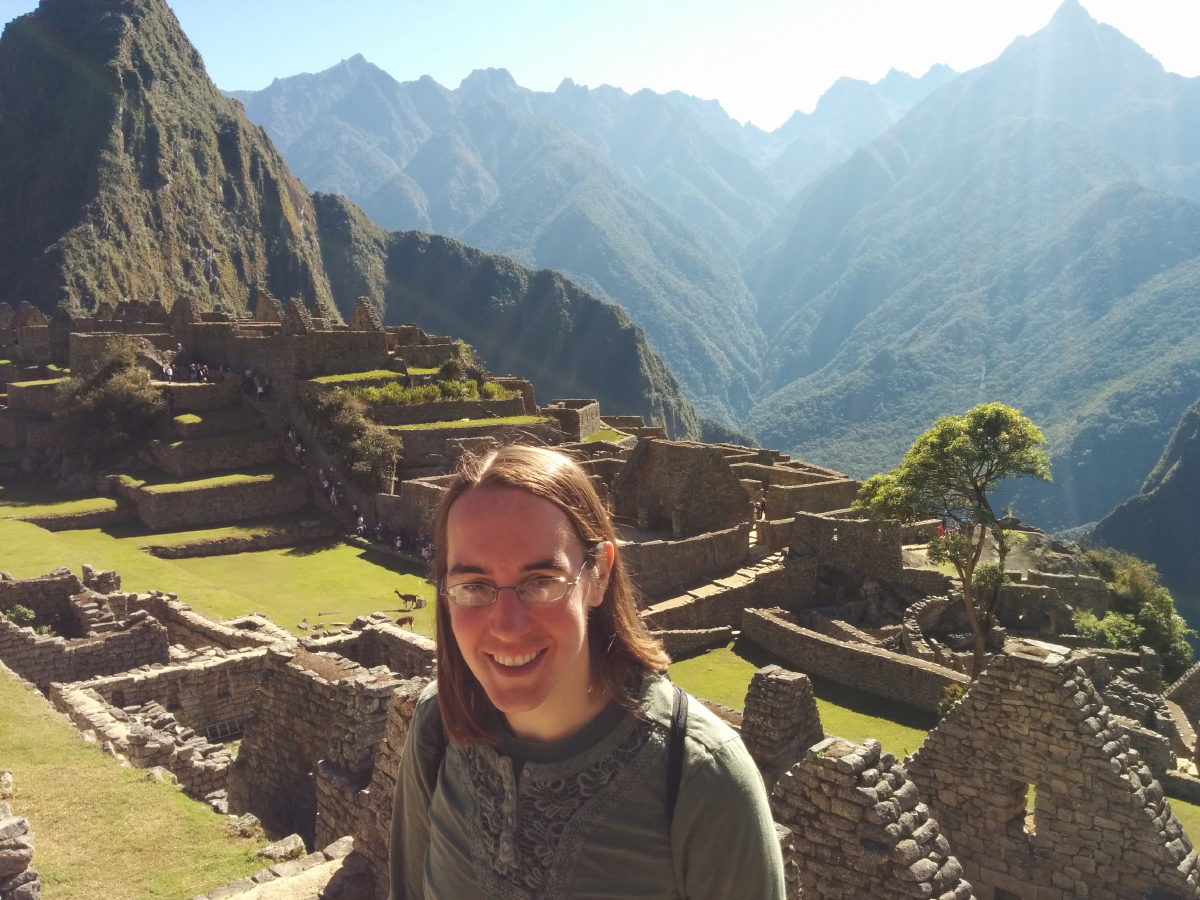
How does what I purchase
and consume affect others that I don’t even see? Are there ways that I can
change my habits to help change systems? Christie Klimas, Assistant Professor
of Environmental Science and Studies pushes her students to ask these questions
as she teaches ethical sourcing in two study abroad programs in Peru. She is
also co-developing a GLE course in collaboration with a university in Brazil
that will focus on biodiversity and its threats.Dr. Klimas connects her
students to people and communities that share directly their experiences of
complicated issues like deforestation, land rights, resource extraction, and
trade and labor practices. In FY@broad
Peru: Chocolate, Coffee, & the Ethics of Global Production, students meet
artisans, fair trade cooperative groups, coffee co-operatives, farmers, and
supporters of indigenous and community land rights. In Peru:
Forests, Mining, & Communities, co-taught with Rose Spalding, students
complete a life-cycle assessment of a global product like gold or timber,
quantifying the product’s impact from extraction to final disposal, and meet
with individuals and communities affected by the choices we make as consumers.
Peru is rich in natural resources and so negotiates key development challenges like
cultural survival, deforestation, resource depletion, exploitation, and
corruption. While Peru’s social, political, and historical context is unique,
what happens there also happens globally. Likewise, in her GLE course ENV 250
Applied Ecology, DePaul students on campus and Brazilian students at
Universidad Estatal Paulista will create photo journals of local wildlife and
discuss perceptions of the natural worlds in Chicago and Litoral, Brazil.
“If there were global
outcries, many of these problems are relatively easy to fix,” says Dr. Klimas.
“We have the potential to make changes industry-wide.” Her students are ready
and motivated to lead this change.